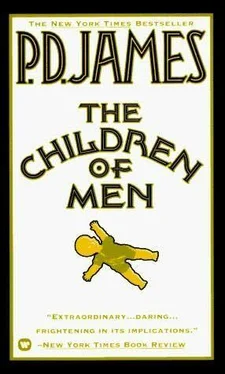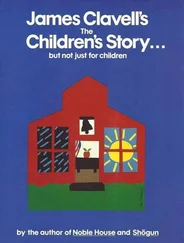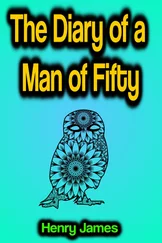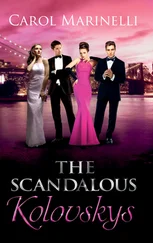Just before nine-thirty on Sunday morning Theo set off to walk across Port Meadow to Binsey. He had given his word to Julian and it was a matter of pride not to renege. But he admitted to himself that there was a less estimable reason for fulfilling his promise. They knew who he was and where to find him. Better be bothered once, meet the group and get it over, than spend the next few months in the embarrassing expectation of meeting Julian every time he went to chapel or shopped in the covered market. The day was bright, the air cold but dry under a clear sky of deepening blue; the grass, still crisp from an early morning frost, crackled under his feet. The river was a crinkled ribbon reflecting the sky, and as he crossed the bridge and paused to look down, a noisy gaggle of ducks and two geese came clamouring, wide-beaked, as if there could still be children to fling them crusts and then run screaming in half-simulated fear from their noisy importunities. The hamlet was deserted. The few farmhouses to the right of the wide green were still standing but most of their windows were boarded up. In places the boarding had been smashed and through the splinters and spears of jagged glass edging the window frames he could glimpse the remnants of peeling wallpaper, flowered patterns once chosen with anxious care but now in tattered fragments, frail transitory banners of departed life. On one of the roofs slates were beginning to slide, revealing the rotting timbers, and the gardens were wildernesses of shoulder-high grass and weeds.
The Perch Inn, as he knew, had long been closed, as custom had dwindled. Across Port Meadow to Binsey had been one of his favourite Sunday-morning walks, with the inn as its destination. It seemed to him now that he passed through the hamlet like the ghost of that former self, seeing with unfamiliar eyes the narrow half-mile avenue of chestnuts which led north-west from Binsey to St. Margaret’s Church. He tried to remember when he had last taken this walk. Was it seven years ago, or ten? He could recall neither the occasion nor his companion if there had been one. But the avenue had changed. The chestnuts were still standing but the lane, dark under the intertwined boughs of the trees, had narrowed to a footpath musty with fallen leaves and tangled with an untamed profusion of elderberry and ash. The Local Council had, he knew, designated certain footpaths for clearage but gradually the number of those preserved had fallen. The old were too weak for the work, the middle-aged, on whom the burden of maintaining the life of the State largely depended, were too busy, the young cared little for the preservation of the countryside. Why preserve what would be theirs in abundance? They would all too soon inherit a world of unpopulated uplands, unpolluted streams, encroaching woods and forests and deserted estuaries. They were seldom seen in the country and, indeed, seemed frightened by it. Woods, in particular, had become places of menace which many feared to enter, as if terrified that, once lost among those dark unyielding trunks and forgotten paths, they would never again emerge into the light. And it wasn’t only the young. More and more people were seeking the company of their own kind, deserting the lonelier villages even before prudence or official decree made it necessary, and moving to those designated urban districts where the Warden had promised that light and power would be provided, if possible, until the end.
The solitary house which he remembered still stood in its garden to the right of the church and Theo saw to his surprise that it was at least partly occupied. The windows were curtained, there was a thin trail of smoke from the chimney and to the left of the path some attempt had been made to clear the earth of the knee-high grasses and to cultivate a vegetable garden. A few shrivelled runner beans still hung from the supporting sticks and there were uneven rows of cabbages and yellowing, half-picked Brussels sprouts. During his visits as an undergraduate he remembered regretting that the peace of the church and the house, which it was difficult to believe were so close to the city, had been spoiled by the loud, ceaseless roar from the M40 motorway. Now that nuisance was hardly noticeable and the house seemed wrapped in an ageless calm.
It was broken when the door burst open and an elderly man in a faded cassock precipitated himself out and came squawking and stumbling down the path, waving his arms as if to repel recalcitrant beasts. He called out in a quavering voice: “No service! No service today. I’ve got a christening at eleven o’clock.”
Theo said: “I’m not attending a service, I’m just visiting.”
“That’s all they ever do. Or so they say. But I shall want the font at eleven. All out then. Everyone out except the christening party.”
“I don’t expect to be here as late as that. Are you the parish priest?”
He came close and glared at Theo with fierce paranoid eyes. Theo thought that he had never seen anyone so old, the skull stretching the paper-thin, mottled skin of his face as if death couldn’t wait to claim him.
The old man said: “They had a black Mass here last Wednesday, singing and shouting all night. That’s not right. I can’t stop it, but I don’t approve. And they don’t clear up after themselves—blood, feathers, wine all over the floor. And black candle-grease. You can’t get it out. It won’t come out, you know. And it’s all left for me to do. They don’t think. It isn’t fair. It isn’t right.”
Theo said: “Why don’t you keep the church locked?”
The old man became conspiratorial. “Because they’ve taken the key, that’s why. And I know who’s got it. Oh yes, I know.” He turned and stumbled, muttering, towards the house, wheeling round at the door to shout a final warning. “Out at eleven o’clock. Unless you’re coming to the christening. All out by eleven.”
Theo made his way to the church. It was a small stone building and with its short twin-belled turret it looked very like an unpretentious stone house with a single chimney stack. The churchyard was as overgrown as a long-neglected field. The grass was tall and pale, as hay and ivy had leached over the gravestones, obliterating the names. Somewhere in this tangled wilderness was the well of St. Frideswide, once a place of pilgrimage. A modem pilgrim would have difficulty in finding it. But the church was obviously visited. On either side of the porch was a terracotta pot containing a single rose bush, the stems now denuded but still bearing a few starved winter-blighted buds.
Julian was waiting for him in the porch. She didn’t hold out her hand or smile, but said, “Thank you for coming, we’re all here,” and pushed open the door. He followed her into the dim interior and was met by a strong wave of incense overlaying a more feral smell. When he had first come here, thirty years ago, he had been transported by the silence of its ageless peace, seeming to hear upon the air the echo of long-forgotten plainsong, of old imperatives and desperate prayers. All that had gone. Once it had been a place where silence was more than the absence of noise. Now it was a stone building; nothing more.
He had expected the group to be waiting for him, standing or sitting together in the dim rustic emptiness. But he saw that they had separated themselves and had been walking in different parts of the church as if some argument or a restless need for solitude had forced them apart. There were four of them, three men and a tall woman standing beside the altar. As he and Julian entered they came quietly together and grouped themselves in the aisle facing him.
He had no doubt which one was Julian’s husband and their leader even before he came forward and, it seemed, deliberately confronted him. They stood facing each other like two adversaries weighing each other up. Neither smiled or put out a hand.
Читать дальше












